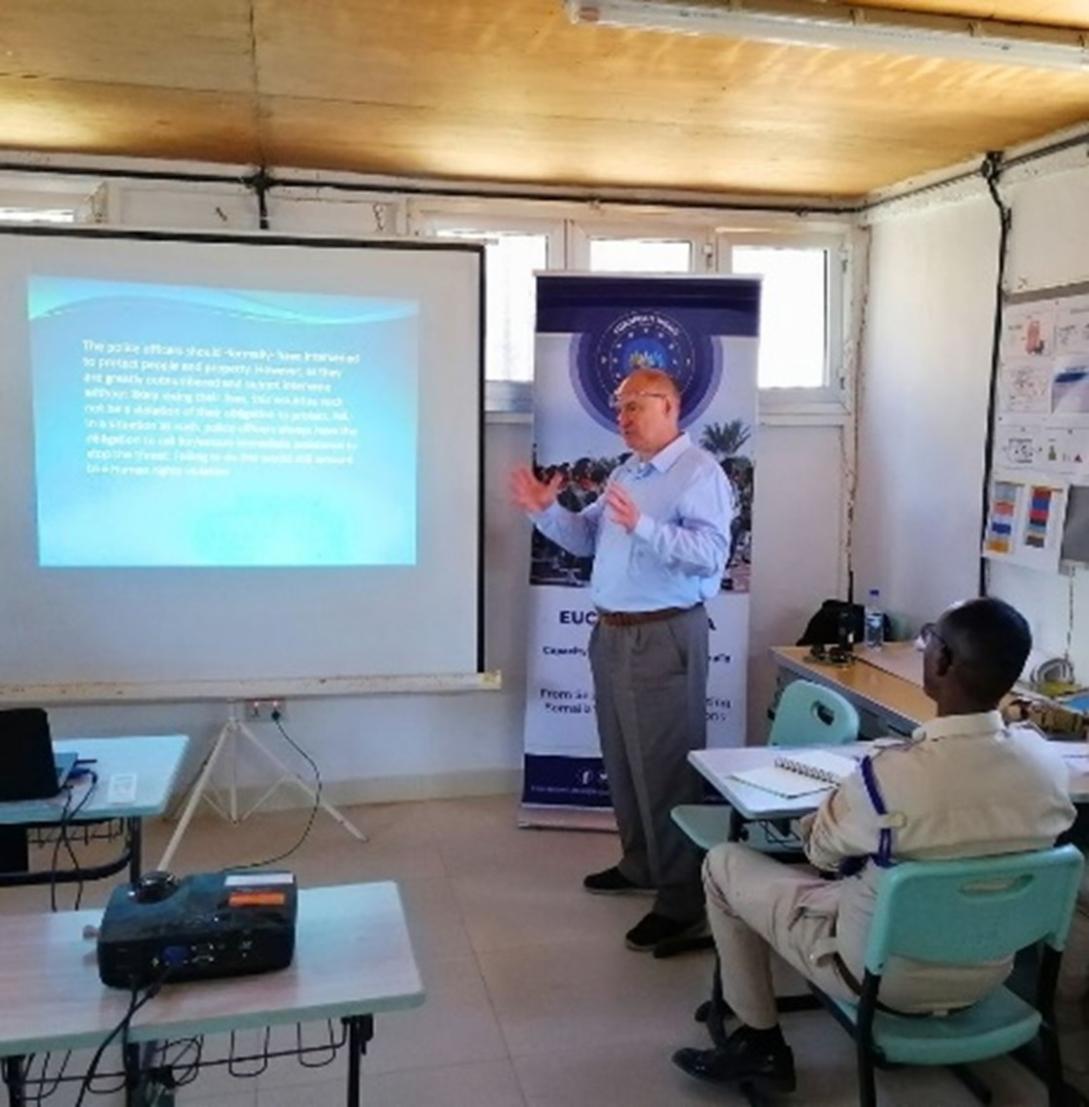In addition to enhancing maritime security and police capabilities in Somalia, EUCAP Somalia is actively supporting the rule of law through training, mentoring, and advisory assistance to Somali officials and security sector officers.
Developing the rule of law is a crucial component in building a safe and stable society. Nonetheless, supporting Somalia's justice sector presents ongoing challenges. The existing legal framework for criminal justice dates to the 1960s and 1970s and is widely seen as outdated, failing to meet current requirements.
In addition to state courts, parallel judicial systems exist in the country. The traditional dispute resolution system known as Xeer remains in operation, especially in rural areas. Alongside parliamentary laws, Sharia law coexist, sometimes competing with government institutions.
However, notable progress in the realm of criminal justice is occurring, with the drafting of new laws and the daily processing of court cases.
Training for the authorities
Currently, a review process of the Criminal Procedure Code (CPC) has been initiated. EUCAP is actively involved in this process by reviewing legislation in force and assessing the proposed amendments. This is an important process, and EUCAP creates added value for the future legislation alongside other international partners. Updating the CPC to reflect developments in the last decades is a key enabler for a well-functioning criminal justice system.
Supporting the development of a legal system does not end with the legal framework; it must include support for implementation of law, as well. EUCAP engages with the Somali criminal justice actors’ chain by delivering advisory and training activities to the rule of law sector, as well as thematic support on legal topics to other institutions. The law enforcement work has been supported by organising for example workshops on combatting corruption, tabletop exercises on maritime crimes, support to the creation of an Oil Spill Strategy by the Ministry of Ports, support to the accession to IMO treaties (MARPOL, SOLAS), and code of conduct training courses for the police.
One of the most important recent developments has been the establishment of the Judicial Training Institute with the financial support of INLO (Bureau of International Narcotics and Law Enforcement Affairs of the US dept of State). Like in most countries, the Institute is to act as the main implementer and quality control mechanism of capacity-building to the Somali criminal justice chain. Once fully operational, the Institute is responsible for providing trainings for judges, prosecutors and lawyers, developing curricula for them and drawing up training materials.
One encouraging sign in the direction of efficiency and sustainability is the interest expressed by the Judicial Training Institute to include eLearning components in their training methodologies. The digital revolution cannot be reversed, and it will inevitably have manifestations also in capacity-building in the rule of law sector. Somalia will benefit from getting onboard as soon as possible, with tailor-made solutions to the Somali context. EUCAP supports the developing of e-learning content for the Judicial Training Institute and is currently developing pilot trainings on Mutual Legal Assistance matters.
The legal framework in Somalia is slowly being rebuild, and a natural consequence, but also a precondition for the stabilisation is development of state institutions delivering justice. This development is currently taking place in the country, but, unfortunately, the process will need a lot of time.
